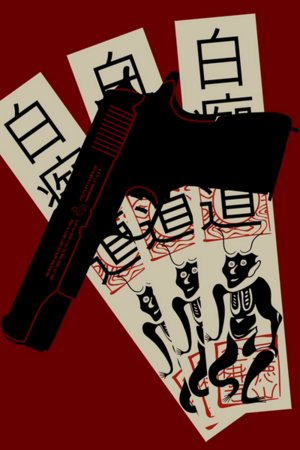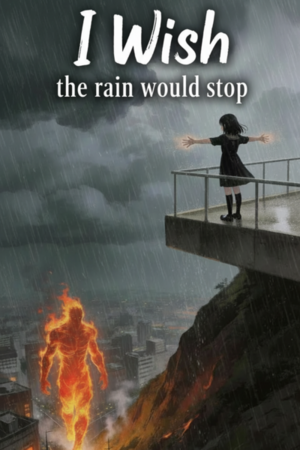Chapter 47:
Navigating New Relationships
Midnight Blue Moon
The whispers of reconciliation started subtly. A shared glance across a crowded communal fire, a hand offered in silent support during a particularly harrowing night of guarding the perimeter, a quiet laugh shared over a meager meal. These small gestures, almost imperceptible at first, were the seedlings of a burgeoning understanding between the survivors and those who, initially, had seemed irredeemably opposed to their cause.
Among them was Elias Thorne, a former mercenary who had once hunted those who now considered him a reluctant ally. His past actions weighed heavily on him, the ghosts of his former life haunting his every move. He had initially approached their valley with hostility, his intentions unclear, but Azalia, with her uncanny ability to sense underlying intentions, saw a flicker of regret in his hardened gaze. She offered him a chance at redemption, a path to atonement, not through forced subservience, but through genuine contribution.
Elias, initially resistant, gradually found himself drawn to the spirit of community that had blossomed in the valley. He discovered a surprising sense of belonging, a feeling he hadn't experienced since the world had shattered. His skills, honed over years of conflict, proved invaluable in training the community's defense force. He taught them hand-to-hand combat, strategy, and survival techniques, his gruff exterior gradually softening as he witnessed the unwavering resilience of those he had once considered enemies. His past, however, continued to haunt him, manifesting in recurring nightmares and moments of intense self-doubt. Azalia, with her deep understanding of emotional healing and her connection to the luminescent plants, patiently helped him confront his demons, reminding him that true redemption lay not in erasing the past, but in shaping a better future. His journey was a testament to the capacity for change, a powerful demonstration of the healing power of community and forgiveness.
Their relationship with the Sylvans, the enigmatic beings who inhabited the shadowed forests beyond their valley, was a more delicate dance. Initially perceived as dangerous and unpredictable, the Sylvans had proven to be surprisingly protective of the valley, their silent observation a silent acknowledgment of their shared struggle against the encroaching corruption. Their communication was not through words but through gestures, intricate patterns woven into the foliage, and ethereal melodies carried on the wind.
Lucian, with his innate understanding of the old magics and his keen sensitivity to subtle energies, acted as a bridge between the two worlds. He learned their language, interpreting their cryptic messages, and mediating their interactions with the human community.
Through Lucian’s efforts, a tentative alliance was forged. The Sylvans shared knowledge of the corrupted land, revealing hidden pathways and safe havens, offering warnings of impending threats. They also revealed ancient methods of harnessing the energy of the luminescent plants, leading to significant advances in the community's ability to protect and heal their land. The alliance was far from perfect; misunderstandings were frequent, requiring patience and careful diplomacy. Yet, the common goal of surviving and preserving the land fostered a unique kind of understanding, a silent respect born of shared adversity.
The most challenging reconciliation was with the remnants of the old world’s ruling class, the so-called 'Order'. Those who remained were scattered, bitter, and resentful. They believed their power and authority should have been preserved, and they viewed the valley's burgeoning community as a threat to their ideals. Ronan, with his past ties to the Order's more ruthless factions, struggled with this reconciliation the most. He still carried the scars of his time in their ranks, and the memories of betrayal ran deep.
However, witnessing the unwavering resilience of Azalia and the blossoming community, Ronan began to question the rigid hierarchies and brutal tactics of the Order. He saw the true strength not in wielding power, but in fostering cooperation and shared purpose. He decided to reach out to the scattered remnants of the Order, not as a conqueror, but as someone seeking understanding and a path to coexistence. His approach was cautious and measured, his words laced with both caution and a surprising sincerity. It was a long and arduous process, filled with setbacks and distrust, but his persistent efforts eventually yielded results. Some members of the Order, disillusioned by the past and weary of conflict, embraced the valley's inclusive ideology, offering their knowledge and skills to the community. Others, however, remained steadfast in their belief in the old ways, continuing to pose a threat, forcing the community to remain vigilant. Ronan's journey of reconciliation highlighted the complexity of forgiveness, the struggle between letting go of the past and accepting the necessity of vigilance.
Navigating these complex relationships required courage, empathy, and a willingness to forgive, even when the wounds ran deep. It was a process of learning, adapting, and understanding perspectives vastly different from their own. The success of these reconciliations wasn’t about forgetting the past, but about acknowledging it, learning from it, and using that knowledge to build a better future. Their ability to find common ground, even with those who had once opposed them, became a testament to their unwavering commitment to building a more inclusive and peaceful world, forged from the ruins of the old. The bonds forged, though fragile at times, held the promise of a future where cooperation replaced conflict, and understanding overcame the bitterness of the past. Their new world was not just a physical haven, but a testament to the resilience of the human spirit and the transformative power of forgiveness. It was a future built not on vengeance, but on the foundations of hope, compassion, and a willingness to embrace the unexpected alliances that had blossomed in the heart of a world reborn. The path ahead would still have challenges, but the very act of forging these new bonds, of finding common ground with their former adversaries, was an achievement in itself – a powerful symbol of their unwavering faith in the promise of a better future. It was a victory not of arms, but of the human heart.




Please sign in to leave a comment.